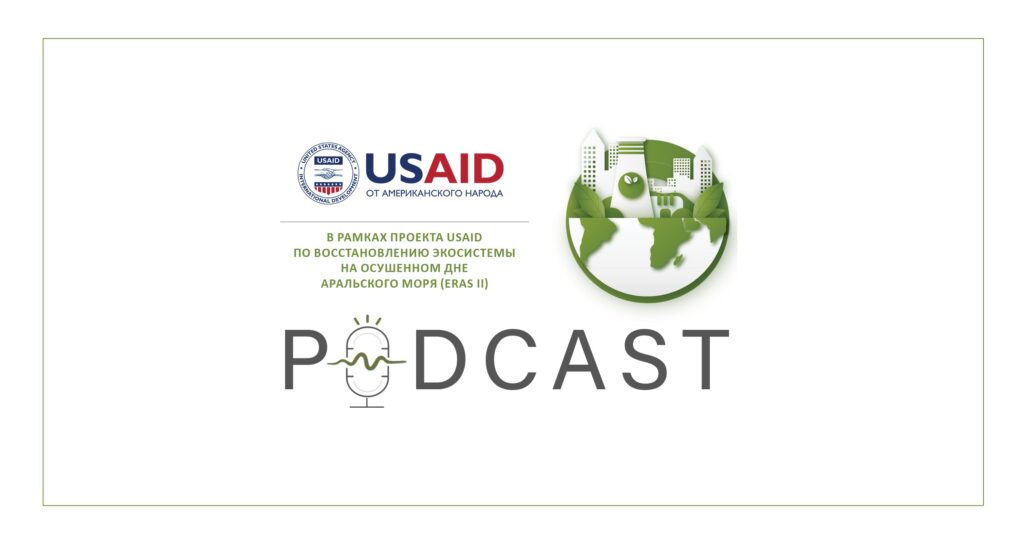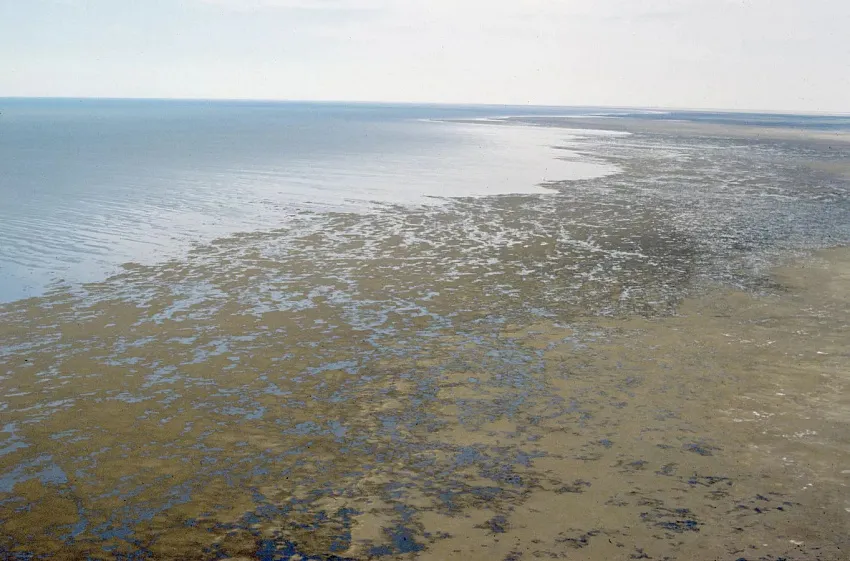The Regional Environmental Center for Central Asia (CAREC) summed up the results of the regional project “Climate Adaptation and Mitigation Program for Aral Sea Basin” (CAMP4ASB) for 2016 – 2024 during a World Bank mission to the CAREC office.
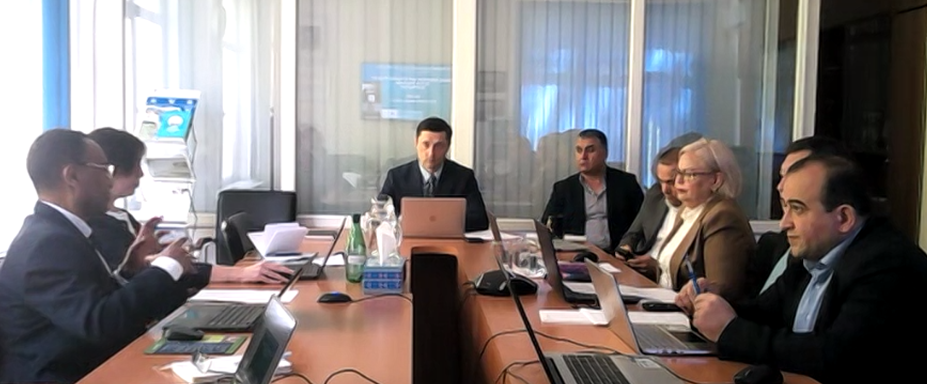
Central Asian countries are among the most vulnerable to climate change in Eurasia. Average annual temperatures across the region have risen from 0.5°C in the south to 1.6°C in the north since the mid-20th century, and the effects of these changes are already being felt, ranging from melting glaciers in the highlands to droughts and floods in the valleys.
On November 3, 2015, the World Bank Board of Directors approved financing for the first phase of the regional project “Climate Adaptation and Mitigation Program for Aral Sea Basin” (CAMP4ASB).
The CAMP4ASB project aims to address common problems and challenges associated with the impacts of climate change in Central Asian countries by increasing access to improved knowledge and data in the field of climate change for key stakeholders (decision makers, expert communities, etc.); and through increased investment and technical capacity.
From 2016 to 2024, Project activities included the operation of a regional climate information platform, modernization of the weather and climate monitoring system, development of climate change assessment methodology and tools, development of climate knowledge information products, human resource development, climate investment assessment mechanism and outreach activities.
Over its 8-year life cycle, the project has achieved significant success in increasing resilience to climate change, promoting sustainable agricultural practices, strengthening regional cooperation and empowering communities in the Aral Sea Basin region, and increasing climate finance in Central Asia.
The project implemented 310 micro-projects on climate-smart agriculture, benefiting more than 50,000 people in Tajikistan and Uzbekistan.
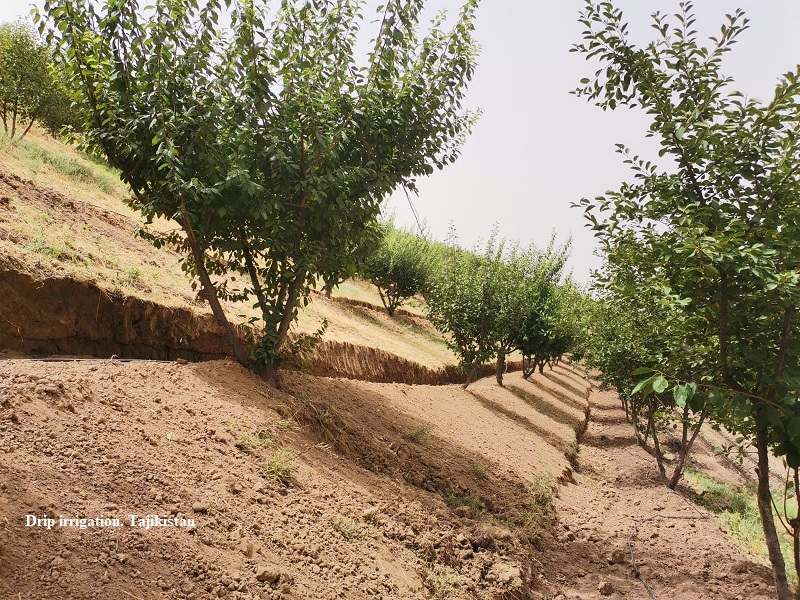
These initiatives included technologies and practices such as drip irrigation, mulching, composting and agroforestry aimed at reducing water and soil loss, increasing crop yields and quality, diversifying income sources and making the agricultural sector more resilient to the impacts of climate change.
CAMP4ASB created 21,310 jobs in Uzbekistan and 31,910 jobs in Tajikistan which demonstrates the contribution of CAMP4ASB to sustainable economic development.
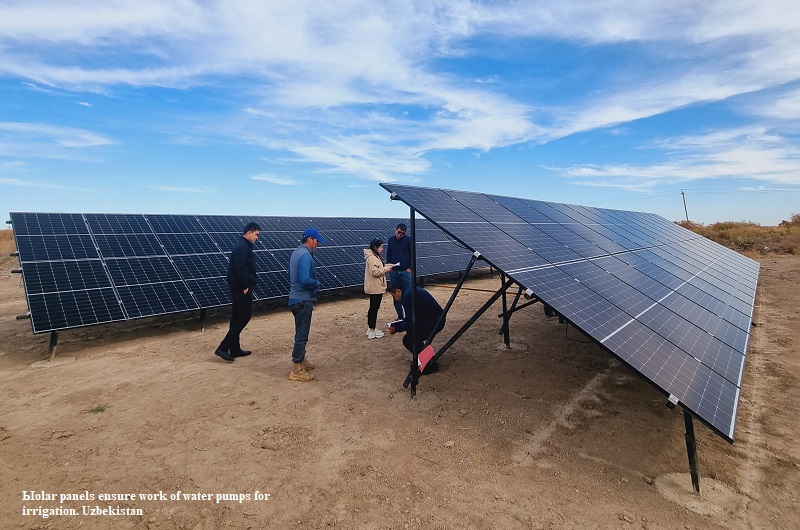
Numerous trainings and seminars were conducted in all project regions, reaching 21,601 project beneficiaries in Tajikistan and 29,411 in Uzbekistan. These capacity-building initiatives were designed to improve resilience to the adverse impacts of climate change.
The project also strengthened regional cooperation on climate policy and knowledge exchange among Central Asian countries by organizing high-level meetings and conferences and establishing a regional expert pool to assess climate investments.
The project focused on gender inclusivity with an average participation rate of 34% for women in capacity-building activities and subprojects. It also supported the establishment of women’s farmer field schools and included women in decision-making processes related to agriculture and natural resource management.
CAMP4ASB launched the Central Asia Climate Information Platform (CACIP), a source of up-to-date data and knowledge on climate change and its mitigation in Central Asia. The platform currently contains over 4,000 knowledge products, over 12,000 publications, 300+ layers and maps, 6 online courses and 11 analysis tools.
The project has achieved significant results in uniting the region to discuss climate change issues. The holding of the Central Asia Climate Change Conferences (CACCC) has already become systematic. The first occurred in 2018, and the sixth will happen this year in Almaty. An important event for civil society at the regional level was the creation of a regional NGO network during CACCC in 2019.
In 2019, a high-level delegation of the Intergovernmental Panel on Climate Change (IPCC) officially visited Central Asia for the first time within CAMP4ASB. Based on the results of the first meeting, CAREC received the status of an IPCC observer organization at the 52nd session of the IPCC in February 2020. This status allows the organization to directly nominate representatives from the Central Asian region to participate in the preparation of global assessment reports of the IPCC.
It also provided a presence of the Central Asian region at international climate summits. Thus, the participation of the region at three Conferences of the Parties to the UNFCCC (26, 27 and 28) was organized. For the first time in the 26-year history of the UNFCCC, the Central Asian Pavilion was organized under the motto “5 countries – 1 region – 1 voice” at the UNFCCC COP26. Also, for the first time, a Regional Statement was prepared for the UNFCCC COP26. The countries of Central Asia acted as a single region, representing a consolidated position on climate change issues, and voiced a regional statement developed at the platform of the Ministry of Foreign Affairs and parliamentarians. As a result, the ReCATH project on climate reporting transparency was also launched at COP26 in Glasgow, which is being successfully implemented.
The meeting participants paid special attention to the fact that in addition to expert platforms, a platform was created that involved political decision-makers in solving climate problems – the platform of the Ministry of Foreign Affairs and parliamentarians. On its platform, climate change, adaptation and mitigation issues of a transboundary nature are discussed and resolved. It is of great importance since the overall environmental policy of the region depends on it. Currently, this is the first and only climate change platform in the region with the participation of high-level decision-makers from Central Asian countries.
As noted, the results of the activities of CAREC and the CAMP4ASB project were highly appreciated by the countries participating in the project, the World Bank and other development partners and, in this regard, the possibilities of proposal and development of the regional program were discussed at the meeting.

Let us remind you that the Regional Project “Climate Adaptation and Mitigation Program for Aral Sea Basin” (CAMP4ASB) received additional funding until May 2024 from the Green Climate Fund and was renamed “Climate Adaptation and Mitigation Program for Aral Sea Basin Additional Financing” (CAMP4ASB AF). CAREC implements the project jointly with EC IFAS under the financial support of the World Bank and the Green Climate Fund.
Additional information:
Irina Bekmirzaeva, Program Manager “Climate Change and Sustainable Energy”/ CAMP4ASB AF Project Coordinator, ibekmirzaeva@carececo.org

